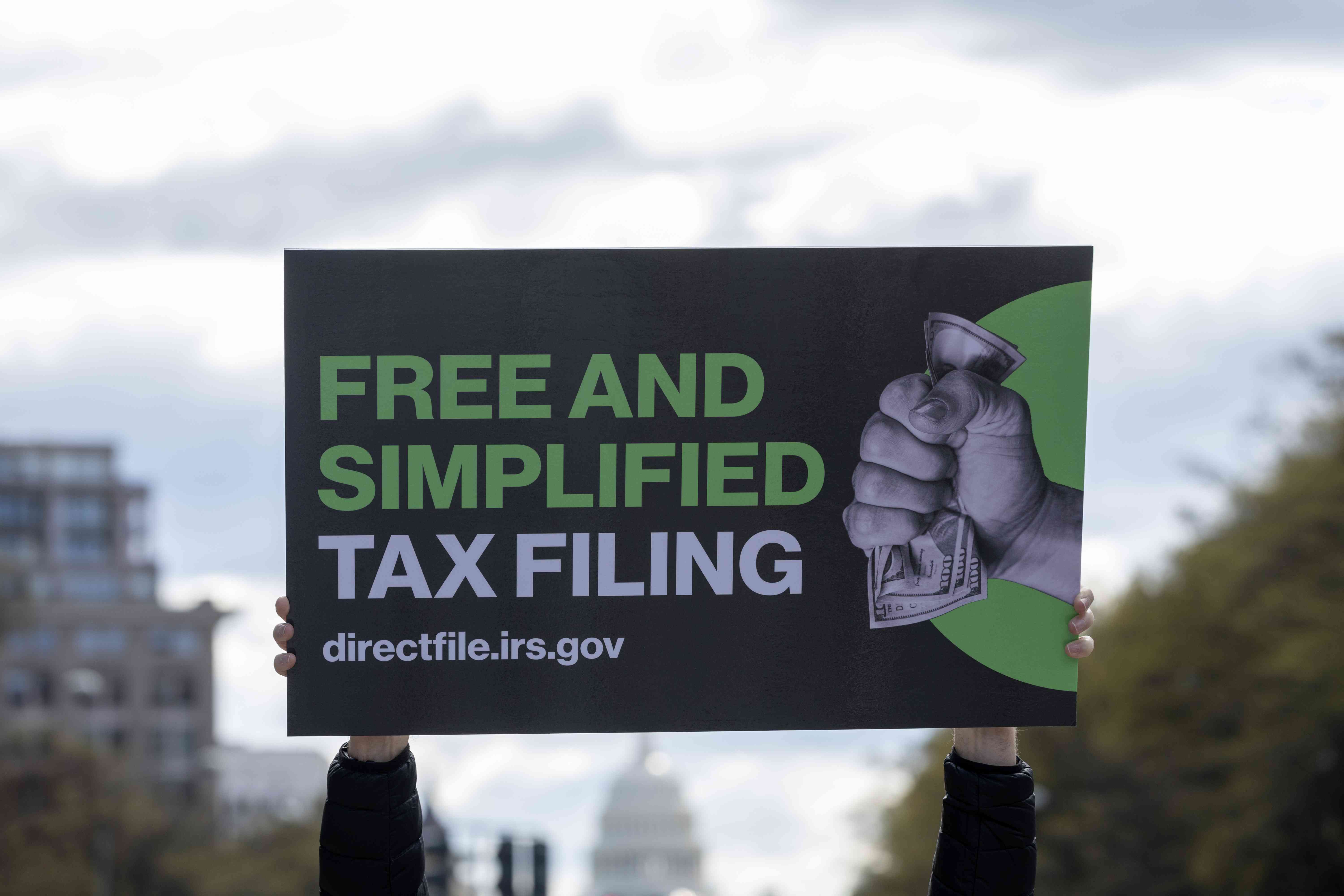
Key Takeaways
- The IRS is making permanent the Direct File program it launched this year, which gives taxpayers a way to file their federal returns directly to the government.
- The IRS will expand the program, which launched as a pilot in 12 states and only dealt with a limited number of tax situations.
- The program garnered positive reviews from users, but criticism from companies that offer paid online tax filing services.
The Direct File program tested this year will be a permanent feature of the tax filing season from now on, the IRS and the Treasury Department said Thursday. A pilot of the program was rolled out in the most recent tax season to 12 states. The program will be made available to residents of other states that sign up, and will expand its capabilities to cover more common tax situations starting in the next tax season, the IRS said.
The trial of the first-of-its-kind tax filing service garnered positive early reviews among the nearly 141,000 people who tried it out this year, the agency said, citing user feedback surveys. Until this season, taxpayers had to use a privately owned tax prep service if they wanted to file online. Those third-party services were sometimes offered for free through the IRS’s Free File program , but usually cost customers a fee. In 2022, the average taxpayer paid $240 to have their taxes prepared, the IRS estimated.
Inflation Reduction Act Funded New Free Tax Filing
The new federal service was launched using funds from the Inflation Reduction Act of 2022 at a cost to taxpayers of $31.8 million. People who used the new system collectively saved $5.6 million in filing costs, the agency estimated.
“Meeting your tax obligations and claiming the credits and deductions for which you’re eligible should be easy,” Treasury Secretary Janet Yellen said on a conference call with reporters. “But the IRS has been underfunded for decades, so taxpayers haven’t gotten the support they deserve. Thanks to the Inflation Reduction Act, we’re changing this.”
It was unclear exactly how many new states would sign up, or how many new features would be added to the service, which only covered basic tax situations in its initial rollout this year.
Private Tax Filing Companies Oppose Direct File
While early users of the service gave it mainly positive reviews, with many saying it was easy to use, it didn’t win over many fans in the tax prep industry, whose business it threatens.
Intuit ( INTU ), the maker of popular tax prep software TurboTax, blasted the program in a press release last month, criticizing it for only having reached seven out of every 1,000 taxpayers who were eligible to use it, among other things. The company’s stock has been trending down in the last five days, but ticked down further in the wake of the announcement.
The IRS said it would offer the new service while continuing to support other filing options, including tax prep software offered by private companies.
“Many taxpayers prefer to work with a third party, whether that is a trusted tax professional or use tax preparation software, both free and commercial,” IRS commissioner Danny Werfel said on a conference call with reporters. “The IRS will continue to support all filing options.”

